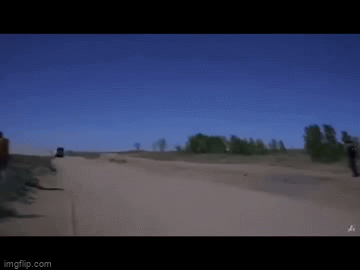

Attentive Observer FEBRUARY 23, 2022 AT 11:19 PM It will be interesting to see who will chair the AC? I think the former tenant of the 10th floor in Munich might be too old. I take bets that he would like an honorary chairmanship and why not a BB passage like it exists a Kurt Haertel Passage in Munich!
Patent robot FEBRUARY 24, 2022 AT 8:58 AM Is all this legal?
Concerned observer FEBRUARY 24, 2022 AT 11:37 AM A good question to which I predict there will never be a satisfactory answer. This is because I have no doubt that the governments of the Participating Member States will exert their influence to ensure that the question falls between one of the numerous cracks between the different (national, international and EU) legal systems that govern the UPC.
Attentive Observer FEBRUARY 25, 2022 AT 12:01 AM I am not too sure that there are so many cracks. What if a national jurisdiction refuses the exequatur of decision taken in Paris and/or Munich in IPC files in classes A and C? National jurisdictions regularly refer prejudicial questions to the CJEU about SPC. It would be surprising if the UPC would not need to do the same. In all courts of member states, there is a double degree of jurisdiction, with a revision instance above. This is not the case for the UPC of for the BA of the EPO. Just compare trademarks: EUIPO, its internal BA and eventually Luxembourg. What seems to have been necessary for a EU TM system should not be valid for a “EU” Patent? You must be joking.
Concerned observer FEBRUARY 25, 2022 AT 10:50 AM Attentive, I agree that IN THEORY there should not be quite so many cracks. However, we are talking here about practice.
To illustrate, consider that ALL of the EPC Member States are party to the ECHR, and the majority are EU Member States. Nevertheless, they have presided over the imposition of measures that deprive EPO staff of human rights that are enshrined in both EU law and the ECHR. And, thanks in large part to a highly “political” decision of the Dutch Supreme Court, they have escaped accountability for doing so.
I do not yet know how, but I am pretty sure that similar tricks to escape accountability will be employed in connection with the UPC. The politicians simply have too much invested in the UPC project for the outcome to be otherwise.
Of course, I could be mistaken. For example, it would be quite something if the CJEU were to rule that it could not consider preliminary references from the UPC, on the grounds that the UPC is not a court common to the EU Member States. However, are we sure that the UPC will risk this outcome? Might the UPC’s judges instead refuse to submit preliminary references to the CJEU, even when they ought to be obliged to seek an opinion from the CJEU on a point of EU law? What could any litigant do in that situation to ensure that their rights under EU law are respected? Would this then come back to a situation where what actually happens is a far cry from what the law says SHOULD happen?
Attentive Observer FEBRUARY 24, 2022 AT 6:08 PM As long as those wanting the UPC declare it is legal, it will be legal. Reasonable doubts are however permitted that the UPC is in conformity with EU law. It seems to need more than a reference to the supremacy of EU law to insure that it is actually the case! It is amazing to see how the supporters of the UPC superbly ignore the open issues which exist. In certain circles, auto-suggestion seems to be a favourite topic. It reminds of a proprietor repeating that claim 1 is novel in the hope that the self-professy suddenly becomes true!
Patent robot FEBRUARY 25, 2022 AT 9:25 AM I was actually thinking about this sentence of the UPC website (28 October 2021):
“The Chairman presented a draft Declaration on the authentic interpretation of Art. 3 of the PAP-Protocol, following the United Kingdom’s withdrawal from the Unitary Patent System. In line with public international law, this Declaration will confirm the entry into force of the PAP-Protocol, once the required 13 Member States become bound by said Protocol, recognizing that Art. 3 of the PAP-Protocol is to be interpreted as mirroring Art. 89 of the UPCA. The delegations supported the approach proposed by the Chairman, hence giving him the mandate to organize a signing ceremony of the Declaration, foreseen in the margins of a future COREPER meeting.”
Has the Declaration been signed? If not, how could the PAP-Protocol have entered into force?
zoobab FEBRUARY 25, 2022 AT 12:05 PM There is new jurisprudence in PL Holdings of the CJEU regarding international courts that have to interpret EU law:
https://ffii.org/pl-holdings-european-court-of-justice-confirms-eu-law-cannot-be-outsourced-to-international-courts-like-unified-patent-court/
The opinion of the AG in PL Holdings was already mentioned in the Jaeger paper.
Supporters of the UPC claims the court is part of the “judicial system of the European Union”, but a common court ***has to*** talk to National Courts to be considered part of the system.
